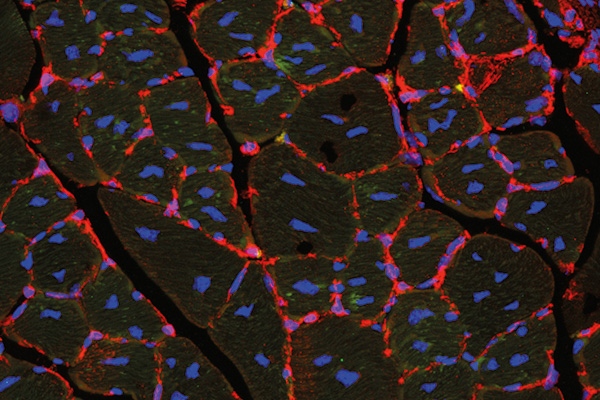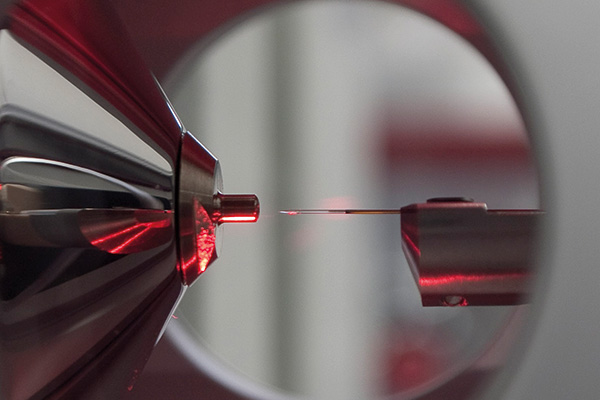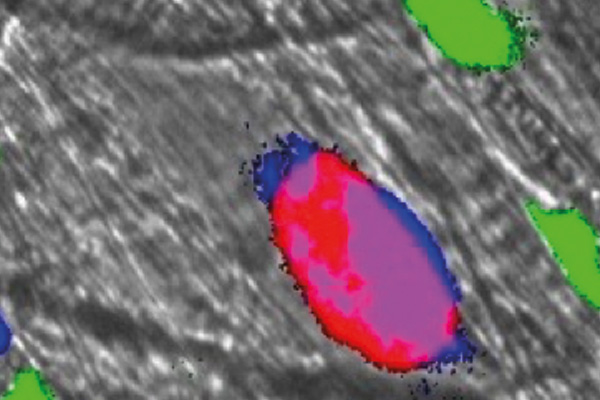TICARDIO
PhD position in the biomedical Innovative Training Network “Thrombo-Inflammation in Cardiovascular Disease” (TICARDIO)
 We offer PhD positions for biomedical doctoral students ithin the ITN "Thrombo-Inflammation in Cardiovascular Disease" (TICARDIO), starting in October 2019. Please visit www.ticardio.eu for a description of the projects. All projects are collaborative projects and will be conducted at two European research locations and the location of a non-academic (industry) partner.
We offer PhD positions for biomedical doctoral students ithin the ITN "Thrombo-Inflammation in Cardiovascular Disease" (TICARDIO), starting in October 2019. Please visit www.ticardio.eu for a description of the projects. All projects are collaborative projects and will be conducted at two European research locations and the location of a non-academic (industry) partner.
The TICARDIO research locations are:
- the Center for Thrombosis and Hemostasis (CTH, the Johannes Gutenberg-University Medical Center Mainz (DE)), referred to as CTH - www.cth-mainz.de
- the School for Cardiovascular Diseases (CARIM) of Maastricht University (NL), referred to as CARIM - www.carimmaastricht.nl
- the Center for Cardiovascular and Nutition Research (C2VN) at Aix-Marseille Université in Marseille (FR), referred to as C2VN, - https://pharmacie.univ-amu.fr/c2vn
- the Leibniz-Institut für Analytische Wissenschaften – ISAS - e.V. in Dortmund (DE), referred to as ISAS - www.isas.de
The TICARDIO partner organisations are:
- Bayer, a top-20 leading pharmaceutical company, Germany
- Boehringer Ingelheim, another top-20 leading pharmaceutical company, Germany
- BioCytex, a French biotech company
- Transnational Oncology at the University Medical Center for Johannes Gutenburg University Mainz, (TRON), an academic non-profit research institution, Germany
- 2M Engineering, a Dutch high-tech SME
- ttopstart, a Dutch science and business consulting company

Representative confocal immunofluorescence microscopy image visualizing endothelial cells (red signal) and cell nuclei using DAPI (blue signal) on cross-section through lower hindlimb mouse muscle. ©Magdalena Bochenek/CTH
benefits of working in our ITN
- You will be working within our international group of > 30 researchers;
- You will be involved in cutting-edge research in an interdisciplinary environment;
- You will conduct your research at two research locations and the site of an industry partner;
- You will receive excellent network-wide and local training with conference participation;
- You will receive a 36 months contract with all national social security (and family allowance, if applicable) at the University Medical Center Mainz;
- You will obtain a joint doctoral degree from Universities of Mainz and Marseille, if all requirements are fulfilled.
PhD position 6: Tissue factor pathway and extracellular vesicles in thrombo-inflammation in the Innovative Training Network (ITN) TICARDIO
JOB DESCRIPTION
We offer a PhD position for biomedical doctoral students at the Center for Thrombosis and Hemostasis (University Medical Center Mainz, Germany) and the Center for CardioVascular and Nutrition research (C2VN at Aix-Marseille Université, France). As this project is part of the MSCA ITN “Thrombo-Inflammation in Cardiovascular Disease” (TICARDIO), you will be trained in an international, interdisciplinary joint doctoral degree program striving to train the next generation of biomedical researchers. Your PhD project will be supervised by Prof. Dr. Wolfram Ruf in Mainz and by Prof. Dr. Francoise Dignat-George in Marseille. Furthermore, a research stay at BioCytex (Marseille, France, Dr. Philippe Poncelet) offers you the opportunity to get insights into research in the industry.
- REQUIREMENTS
- You have a Master degree (or equivalent) in biomedical sciences or a similar field;
- You are in the first four years of your research career and do not hold a doctoral degree;
- You must not have resided in Germany for more than 12 months in the 3 years prior to the recruitment;
- Ideally, you have experience in protein biochemistry and/or cell and molecular biology; experience with flow cytometry is desirable.

Nanospray ion source with emitter at ISAS. ©ISAS/Andreas Dillhöfer
CONDITIONS OF EMPLOYMENT
Fixed-term contract: 36 months.
This project offers good conditions of employment.
EMPLOYER
The Thrombo-inflammation in cardiovascular disease (TICARDIO)
Project 6
Tissue factor (TF) is a major driver of thrombosis and inflammation. How TF expressed by blood and vessel wall cells, and in particular when released via extracellular vesicles (EV), contributes to vascular inflammation remains to be elucidated. We hypothesize that the source of EV and their release mechanism determine the interactions of EV with blood cells and vessel wall in thrombotic inflammation.
This project aims to understand how the release mechanisms generating EV from blood (monocytes) and vessel wall cells determine the protein and lipid compositions of EV. You will study how these properties of EV influence the delivery of cargo and impact interactions with blood cells and the endothelium in thrombo-inflammation. You will be trained in cell biology and omics approaches and develop imaging techniques for the visualization of EV-associated proteins. You will investigate the interactions of EV with vascular cells and analyze TF-bearing- EV initiate and disseminate intravascular coagulation processes.
The ultimate goal is to develop new diagnostic approaches for measuring functional activities of EV (e.g high sensitivity TF assays) and develop novel methods for imaging EV interactions with vessel wall cells using microfluidic devices in vitro and established thrombosis models in vivo. The long- term perspective of this project is a better definition of the roles of EV in thrombosis and determine their potential to elicit inflammatory cell signaling.
ADDITIONAL INFORMATION
TICARDIO receives funding from the European Union’s Horizon 2020 research and innovation programme under the Marie Skłodowska-Curie Grant Agreement No 813409.
How to Apply
Please visit http://www.ticardio.eu for all information on the recruitment process and required application documents. Application deadline: December 31, 2019.

TICARDIO receives funding from European Union's Horizion 2020 research and innovation programme undder the Marie Sklodowska-Curie Grant Agreement NO 8134409.

Realtime intravital imaging of a thrombus in a living mouse. Blue: Neutrophils; Red: Platelets; Green: Monocytes. ©Dignat-George/AMU
:fill(white)/logos/ticardio-en-wide.png)